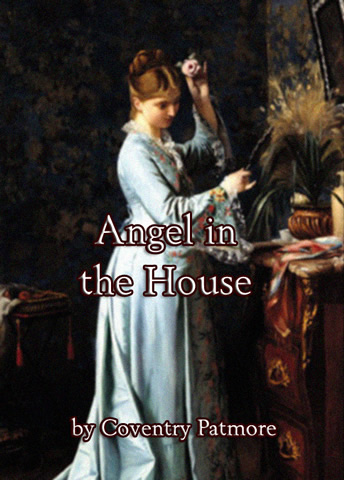
I have been at conferences where someone has wryly remarked that a lot of translators were female, going on to speculate that this was because translation was handmaiden to the original. Following this line of thought one might see the translator as the old fashioned wife, or as Coventry Patmore had it, 'the angel in the house', modestly serving and providing the family with children and sustenance while the maestro husband leads an illustrious, public life, earning praise and the big money.
Le me follow this line a little further. I suspect I have at times felt like a wife to the author. Not so much to the poets, particularly the lesser known poets (all Hungarian poets are, by definition, lesser known poets) because in poetry the translator becomes more visible and the act of translation more overt. Poetry concentrates language and squeezes it into rhythms, rhymes and other devices that the reader instinctively knows are untranslatable, at least in the sense that translation is generally understood. The more famous poems are often re-translated and it is reasonable to think of Dante as Cary's Dante, or Sayers's Dante, or Pinsky's Dante, or O'Brien's Dante. I recall Don Paterson, a very long time ago on radio, discussing my translations of Zsuzsa Rakovszky and suggesting that much of her was actually me in the translation. Indeed it was, though not to the extent Don thought, or to the extent Don himself practises. But I dealt with that yesterday. In poetry the clear window is more like a Claude Glass, hard not to notice.
The wifeliness is more marked in the case of prose where, as both dritanje and panther remarked in yesterday's comments, one expects a notional transparency, the vanishing of the translator. So the lady vanishes, or is likely to vanish. Translators have made the bed the author lies in but they do not sleep in it. More maids than wives then perhaps. This was the discussion at the last Writing Worlds where the novelist Maureen Freely described what it was like to be the translator of the Nobel Prize winning Orhan Pamuk. She didn't get the prize - she didn't get anything - but it was her English words and sentences that the jury was, at least partly, reliant on. Women nowadays no longer expect to be disappearing angels in the house, and good for them, I say. Maureen resented being wife to Mr Pamuk.
Translators have a sense of being used (the sexual innuendo is fully intended). For instance when I turned up at Knopf in New York for whom I was translating Márai I was received like a passing nuisance and not even offered a cup of coffee. But I shouldn't complain. At least, I tell myself, a good number of reviewers have passed comment on my translations and noted the fact that I have actually written the text in front of them.
Or have I written it? In what sense have I written it? What is it I have been doing, allowing another text to pass through me? Or rather not through me, but to be changed and processed by some part of my brain so that it might appear as something else? What is the translation struggle about? How have I become a servant, a handmaid? Is that what I am? A servant? A good wife? Am I now Mrs Kosztolányi? Mrs Márai? Mrs Krúdy? Mrs Krasznahorkai? Or maybe just a maid, like Judit in Márai's Portraits of a Marriage. Do I feel demeaned by my lowly role or privileged to be a modest part of their genius? How could I be a menial, or even an angel in the house, when I am prince of my own poems and can strut about my estate of words like an aristocrat, or at least like a high bourgeois landlord? Or the owner of an allotment of no particular size, a small thing but my own? Or the living tenant of my haunted Central European tenement block in the UK provinces or the sleep-fields of Norfolk? More questions.

2 comments:
At the risk of sounding pretentious, if every poem, every story, every novel (and every art-form of whatever kind, verbal, visual, musical) flows from the Collective Unconscious, the universal "mind" that Jung wrote about, then the translator is akin to the writer. In other words, both are ciphers.
But of course, a writer can never be entirely a cipher, because the writer's own skills, preferences, point-of-view cannot be abolished or even set aside for a while. A writer just cannot be a clear vessel through whom the pure waters of Inspiration flow.
Just thoughts. . .
Transgendering through translation . . . I never knew such existed . . . I'll never attempt it again . . . I was never good at it, anyway, for which I'm kind of glad now. I'm, well, comfortable with my boring but steadfast sense of who I am. :-)
Post a Comment